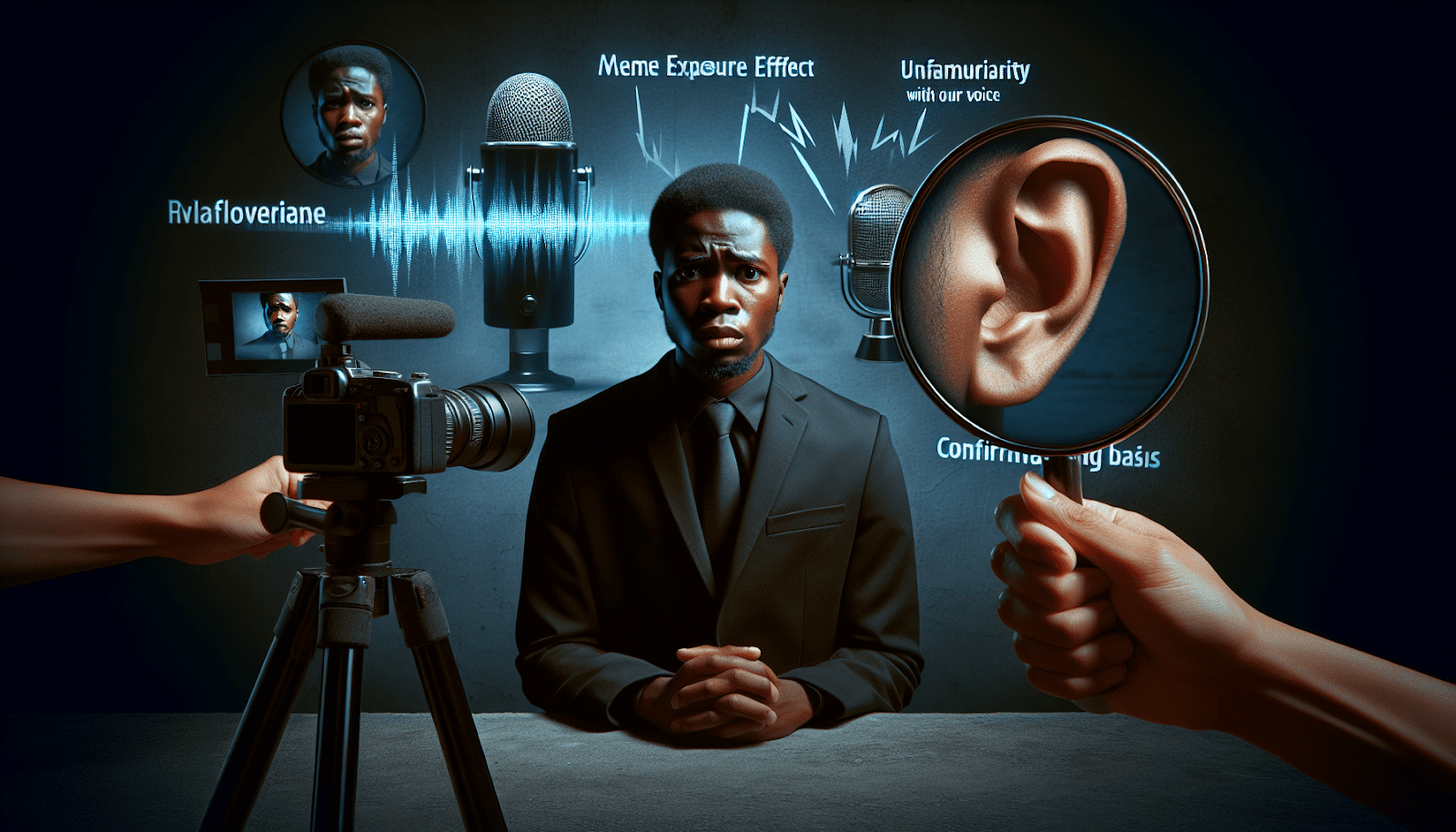News, Updates, & Resources
Why Do We Hate Seeing and Hearing Ourselves on Video?

Introduction
Have you ever wondered why you cringe when you see yourself on video or hear the recording of your own voice? You’re not alone. Many people feel uncomfortable and self-conscious when faced with their own image and sound.
Reason #1: The Mere Exposure Effect
One of the main reasons why we dislike seeing ourselves on video is due to the mere exposure effect. This effect describes our tendency to develop preferences for things simply because we are familiar with them. It’s also known as the familiarity principle.
American social psychologist Robert Zajonc conducted experiments in 1968 to study this effect. In his experiments, subjects were shown made-up words and Chinese characters multiple times. The subjects who were exposed to these words more frequently responded more favorably to them.
As humans, we have evolved to become more favorable towards things that we are most familiar with. This familiarity has helped us survive throughout history. Think back to caveman days when we relied on familiarity to determine whether we were in danger or not. When we look at ourselves on camera, we are seeing a slightly different version of ourselves than what we are used to seeing in the mirror. This slight variation can trigger our fight or flight instinct, leading to discomfort or dislike.
Reason #2: Unfamiliarity with Our Own Voice
Another reason why we may hate hearing ourselves on video is because we are not used to hearing the sound of our real voice. When we speak, the sound travels through our vocal cords and mouth, and then reaches our ears or the recording device via air conduction.
What we hear in our own heads is a combination of air conduction and bone conduction. Our voice resonates within our own skull, creating a deeper and more resonant tone than what others hear. When we listen to recordings of our voice, we often cringe because it sounds different from what we are accustomed to hearing.
Reason #3: Confirmation Bias
Confirmation bias plays a significant role in why we dislike seeing and hearing ourselves on camera. This bias refers to our tendency to search for, interpret, favor, and recall information that confirms or supports our prior beliefs or values.
When we have self-consciousness about our appearance or certain aspects of ourselves, we tend to focus on those things when watching videos of ourselves. This bias causes us to perceive things in a way that may not even be true. Our fears and insecurities amplify, leading to discomfort and dislike.
Overcoming the Fear
Now that we understand the physiological and psychological reasons behind our dislike for seeing and hearing ourselves on video, how can we overcome this fear? The most practical way is to take imperfect action.
By showing up on camera and getting used to seeing and hearing ourselves, we can harness the power of the mere exposure effect for good. We can become familiar with the version of ourselves that others see, ultimately overcoming our unfounded fears.
Conclusion
Seeing and hearing ourselves on video may initially make us cringe due to the mere exposure effect, unfamiliarity with our own voice, and confirmation bias. However, by taking imperfect action and getting comfortable in front of the camera, we can overcome these fears and become more confident in our own skin.
What holds you back from getting on camera? Whether these fears are founded or unfounded, it’s important to recognize and address them.

JOIN OUR MAILING LIST
Contact
Phone
707-321-7867
Jon@evolvevideomarketing.com
Address
Evolve Video Marketing
Santa Rosa, CA 95405